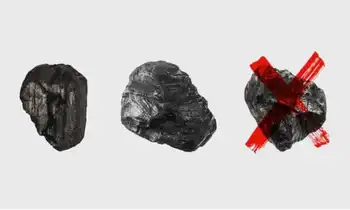Green building program tangled in red tape
By Toronto Star
Arc Flash Training CSA Z462 - Electrical Safety Essentials
Our customized live online or in‑person group training can be delivered to your staff at your location.

- Live Online
- 6 hours Instructor-led
- Group Training Available
"The cost and burden of preparing the application for... financial support and the wait time were major barriers to applying," says a review of one of the now-cancelled programs.
"This meant that fewer building owners applied than could have."
Companies could apply to the Existing Buildings Initiative and the Commercial Building Incentive Program for money and training to refurbish or construct buildings to use less energy and emit fewer greenhouse gases.
Natural Resources Canada administered both programs until they were cancelled in 2007 and 2008. The department later hired a consultant to assess the programs' successes and failures.
Reports prepared last March by Government Consulting Services, obtained by the media under the Access to Information Act, found that bureaucratic procedure bogged down the programs.
"Barriers continue to exist with respect to financing energy efficiency, knowledge and capacity, administrative burden and motivation to change," one report says.
To apply to the Existing Buildings Initiative, for example, companies first had to send a letter to the natural resources minister. Then they had to submit a corporate energy management plan to a separate organization. Then they had to send more paperwork to NRCan to apply for funding.
And then they waited. And waited.
Anonymous feedback in the reports from companies that applied or considered applying to the programs reflects their frustration over the delays.
"It took so long for the application to be processed the project had to proceed without it. Amount of energy wasted by waiting for incentive was much higher than the incentive value," said one respondent.
Said another: "The hoops to jump through make it more trouble than it is worth, every time."
But despite all their problems, the consultant deems the programs an overall success in curbing energy consumption and greenhouse gases.
The report says energy-efficient retrofits lowered buildings' energy consumption by an average of 19.5 per cent a year between 2002 and 2007. And the new buildings program encouraged firms to construct buildings that are 25 per cent more energy efficient than required by code.
The consultant estimates the programs will save Canada hundreds of millions of dollars in wasted energy.
The reports conclude there is a need for similar green building programs, albeit without the administrative delays.
NRCan refused an interview request, but said in a statement the government's new suite of eco-energy initiatives are an improvement on the cancelled green building programs.
"The government of Canada's new eco-energy efficiency initiatives offer improved service standards, focused marketing efforts, and new, alternative ways to enhance building codes; all lessons learned through the standard assessment of the two former energy efficiency programs," the department said.
The Existing Buildings Initiative cost a total of $96 million between 2002 and 2007. Retrofit projects kept more than 1.2 million tons of greenhouse gases out of the atmosphere during that period.
The Commercial Building Incentive Program cost a total of $57 million between 2002 and 2007. The project prevented 200,550 tons of greenhouse gases from spewing into the air.











